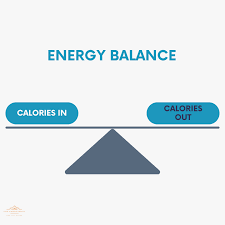Beyond Calories: Understanding the Nutritional Impact on Well-being


When it comes to health and fitness, the conversation often starts with "calories in, calories out." But as Crystal McLean, RD, explains, focusing only on calories can leave you feeling frustrated and fatigued. True well-being and sustainable weight management require a deeper look at the quality of what we eat.
The Limitations of Calorie Counting:
Counting calories is useful, but it only tells part of the story. Crystal points out that simply eating less and moving more can lead to exhaustion, not results. This approach often ignores the nutrient content of the foods we eat, which plays a critical role in how our bodies feel and function every day.
The Role of Nutrients:
Calories may dictate weight changes, but nutrients determine how we perform, recover, and feel throughout the day. Nutrient-dense foods, like lean proteins, colorful vegetables, and whole grains, can boost energy, improve focus, and keep you satisfied. On the other hand, calorie-dense but nutrient-poor foods may leave you feeling hungry and craving more, even if you technically stay within your calorie goal. Understanding the nutritional value of your food is key to creating sustainable habits.
Educating for Better Choices:
Crystal emphasizes the importance of knowing what different foods offer. By learning how nutrients affect your body, you can make smarter choices that align with your health goals. This knowledge empowers you to eat for energy, recovery, and long-term well-being instead of just hitting a calorie target.
Conclusion:
Moving beyond the simple calorie equation allows you to focus on the nutritional impact of your food. By prioritizing nutrient-rich choices, you can boost energy, satisfaction, and overall health, making it easier to maintain a healthy lifestyle.
Curious about how we can help you reach your goals? Book your No Sweat Intro today to get an in-person tour and chat about how we can support your nutrition and fitness journey.